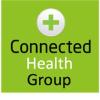Team Leader Supported Living
Job Description
Team Leader
Core Purpose:
To lead a team that enables individuals to live independently, safely, and meaningfully in
their own homes, ensuring high-quality support aligned with personal goals, health
needs, and safeguarding standards.
Key Roles and Responsibilities
1.
Person-Centred Support
Promote independence, choice, and dignity in line with individual support plans.
Ensure care is tailored to each person's needs, preferences, communication
style, and risks.
Lead by example in providing direct support, including personal care,
medication, and managing behaviours that challenge.
Support individuals with their emotional wellbeing and community engagement.
2.
Team Leadership
Supervise, coach, and support the support workers on shift.
Allocate duties effectively to ensure safe and responsive service delivery (shift
planning)
Hold regular team meetings, supervisions, and handovers.
Ensure staff are working in line with values of respect, compassion, and
inclusion.
3.
Health & Complex Needs Management
Support and oversee individuals with:
o Epilepsy (e.g. implementing seizure protocols)
o Diabetes (e.g. blood sugar monitoring, dietary management)
o Mental health conditions (e.g. recognising deterioration, promoting
wellbeing)
o Dual diagnosis and complex comorbidities (e.g. linking with mental health
teams)
Liaise with professionals: GPs, learning disability nurses, behaviour specialists,
psychologists.
4.
Behaviour Support
Implement Positive Behaviour Support (PBS) plans effectively and consistently.
Lead debriefs after incidents and support staff reflection.
Promote proactive and preventative approaches to reduce incidents.
Record and report incidents using agreed systems (e.g. ABC charts, behaviour
logs).
5.
Safeguarding & Risk Management
Act as a safeguarding lead on shift--report concerns promptly.
Ensure staff are familiar with and follow risk assessments and safeguarding
policies.
Complete incident forms and escalate concerns to management.
Conduct spot checks to ensure safe manual handling, medication, and
environmental practices.
6.
Health & Safety / Compliance
Ensure compliance with:
o Medication administration (MAR charts, audits)
o Fire safety, infection control, food hygiene, and environmental checks
o CQC Fundamental Standards
Keep records up to date and audit-ready.
Report maintenance or H&S issues quickly and follow up.
7.
Rota Planning
Rota Planning & Shift Management: Create, manage, and communicate team
rotas in a timely and fair manner, ensuring adequate staffing levels across all
shifts. Take into account team availability, workload forecasts, and business
needs while maintaining compliance with working time regulations. Adapt
schedules quickly in response to absences or unexpected changes, ensuring
minimal disruption to operations.
8.
Training and Staff Development
Monitor staff training compliance and support learning in practice.
Coach team members on how to improve care, communication, and incident
responses.
Identify underperformance or training needs and report to managers.
Take ownership of onboarding and training new team members, ensuring they
receive the appropriate guidance, resources, and support to perform effectively.
Identify skills gaps within the team and coordinate ongoing training sessions or
mentoring as needed to maintain high performance and continuous
development.
9.
Risk Assessment and Care Planning
Lead and oversee the development, implementation, and regular review of
individual risk assessments in line with organizational policies and regulatory
standards.
Ensure care and support plans are person-centred, up-to-date, and reflect the
assessed needs, preferences, and goals of each individual.
Collaborate with team members, families, and relevant professionals to gather
accurate and comprehensive information to inform care planning and risk
management strategies.
Monitor and audit care and risk documentation to ensure compliance, quality,
and consistency across the team.
Provide guidance and training to staff on effective care planning and risk
assessment processes, ensuring they are understood and properly executed.
Respond proactively to changes in an individual's condition or circumstances,
ensuring timely updates to risk assessments and support plans as required.
Promote a culture of safety and accountability, ensuring that risk is
appropriately identified, documented, and mitigated while supporting positive
risk-taking where appropriate.
10.
Communication & Record-Keeping
Maintain accurate support records, daily logs, risk assessments, care plans, and
communication books.
Ensure information is passed on clearly between shifts, to families, and to
professionals.
Support individuals with communication needs, using visual aids or alternative
communication methods if needed.
11.
Professional Relationships
Build and maintain strong, respectful relationships with:
o Families and advocates
o Health and social care professionals
o Managers and external inspectors (e.g. CQC)
12.
Audit Responsibilities
As part of the Team Leader role, you will be responsible for ensuring compliance and
continuous improvement through regular audits in the following key areas:
Medication Audits: Oversee and conduct routine medication audits to ensure
accurate administration, secure storage, and proper documentation of all
medications in line with legal and regulatory standards. Identify discrepancies,
implement corrective actions, and support staff training to uphold best practices
in medication management.
Finance Audits: Conduct financial audits to monitor petty cash, service user
finances (where applicable), and departmental spending. Ensure accurate
record-keeping and adherence to organizational policies and budget controls.
Support transparency and accountability by escalating any anomalies to senior
management.
Health and Safety Audits: Carry out scheduled and unscheduled health and
safety audits to identify risks, ensure safe working environments, and maintain
compliance with statutory health and safety regulations. Coordinate with
relevant stakeholders to implement corrective measures and maintain up-to date risk assessments.
These responsibilities are integral to maintaining high standards of care, accountability,
and safety within the team and wider service environment.
13.
Emergency Response
Take the lead during incidents or emergencies: seizures, mental health crises,
safeguarding disclosures, etc.
Ensure emergency procedures are followed and accurate documentation is
completed.
Be prepared to lead and support colleagues in high-pressure situations.
Key Skills and Traits
Calm under pressure, especially during challenging behaviours or emergencies.
Strong understanding of autism, PBS, mental health, and dual diagnosis.
Clear communicator and confident decision-maker.
Passionate about equality, inclusion, and rights-based care.
Mandatory Training (Core Competencies)
These are usually required for all care/support roles, including Team Leaders:
1. Care Certificate (or equivalent if already experienced)
2. Health & Safety
3. Manual Handling / Moving & Handling
4. Safeguarding Adults (Level 2 or 3)
5. Mental Capacity Act (MCA) & Deprivation of Liberty Safeguards (DoLS)
6. First Aid (Emergency or Full)
7. Medication Administration (Level 3 often required for Team Leaders)
8. Fire Safety
9. Infection Control
10.Food Hygiene
11.Equality, Diversity & Inclusion
12.Conflict Resolution / Managing Challenging Behaviour
13.Data Protection / GDPR
Role-Specific Leadership & Management Training
As a Team Leader, you'll need skills in supervision, delegation, and compliance:
1. Level 3 or 4 Diploma in Health and Social Care (or working toward it)
2. Level 3 Award in Leadership and Management (e.g., ILM or CMI)
3. Supervision & Appraisal Training
4. Person-Centred Care Planning
5. Incident & Complaint Management
6. Performance & Team Management
7. CQC Fundamental Standards & Regulations (UK only)
Additional Desirable Training
To further develop and demonstrate leadership:
Autism Awareness / Positive Behaviour Support (PBS)
Mental Health First Aid
Coaching and Mentoring Skills
Resilience & Wellbeing at Work
Domestic Abuse / Trauma-Informed Practice
Local/Organizational Variations
Some providers may also require:
Driving license / access to vehicle
Experience managing rotas, risk assessments, and audits
IT systems training (e.g., for care planning software
Job Types: Full-time, Permanent
Pay: 13.00 per hour
Expected hours: 37.5 per week
Benefits:
Casual dress
Company events
Application question(s):
Do you have your NVQ level 3 in Health and Social care
Are you able to work a shift pattern including some weekends
Experience:
Supervisor: 1 year (preferred)
Work authorisation:
United Kingdom (required)
Work Location: In person
Reference ID: 001148
MNCJobs.co.uk will not be responsible for any payment made to a third-party. All Terms of Use are applicable.
Job Detail
-
Job IdJD3419274
-
IndustryNot mentioned
-
Total Positions1
-
Job Type:Full Time
-
Salary:Not mentioned
-
Employment StatusPermanent
-
Job LocationPinner, ENG, GB, United Kingdom
-
EducationNot mentioned

